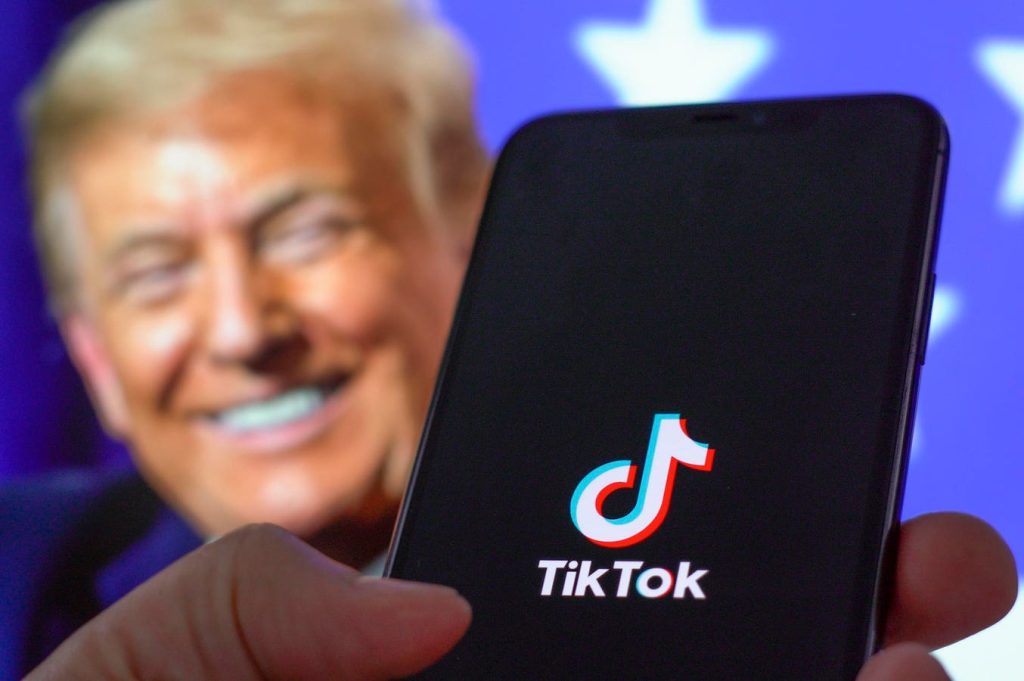TikTok’s Fate Hangs in the Balance as Supreme Court Weighs Ban and CEO Appeals to Trump
The popular social media platform TikTok faces an imminent ban in the United States, scheduled to take effect as early as January 19th. The app’s parent company, ByteDance, a Chinese firm, has filed an emergency request with the Supreme Court seeking to halt the implementation of a law mandating its divestment from TikTok or face a nationwide blackout. Adding to the drama, TikTok CEO Shou Zi Chew met with President-elect Donald Trump, presumably to lobby against the ban and explore potential solutions. However, the political landscape surrounding the ban presents a complex scenario where Trump might benefit from the app’s temporary demise.
The legal battle stems from a law passed in April, granting ByteDance 270 days to sell TikTok to a non-Chinese entity. Instead of complying with the divestment mandate, ByteDance opted to challenge the law’s constitutionality, arguing that it infringes upon First Amendment rights. In a surprising decision, the DC Circuit Court of Appeals upheld the law, asserting its necessity to safeguard American free speech. The court also denied TikTok’s plea to postpone the ban’s implementation pending further legal proceedings. ByteDance’s Supreme Court filing highlights the potentially devastating consequences of even a temporary shutdown, including disrupted advertising contracts worth billions, damage to business partnerships, and a creator exodus from the platform.
While the Supreme Court could grant TikTok’s request for a stay as a gesture towards Trump, the President-elect might find political advantage in allowing the ban to proceed under the outgoing Biden administration. This scenario presents a unique opportunity for Trump to seemingly "rescue" TikTok. By allowing the ban to take effect on Biden’s final day and subsequently reversing it with his executive authority shortly after his inauguration, Trump could claim credit for saving the platform and simultaneously shift blame for its temporary absence onto the previous administration. This maneuver aligns with Trump’s focus on optics and fulfills a campaign promise.
Trump’s pledge to "save" TikTok is constrained by the law’s provisions. His authority is limited to granting ByteDance a single three-month extension to facilitate a sale, a path ByteDance has vehemently rejected. Should the ban proceed, this extension becomes a strategic tool for Trump. If ByteDance fails to sell within the extended period, the onus falls on them, absolving Trump of responsibility.
This political maneuvering puts ByteDance in a precarious position. While a three-month reprieve provides valuable time, it doesn’t align with their ultimate goal of retaining ownership and control of TikTok. The extension could be leveraged to negotiate with the Trump administration, potentially persuading them to accept alternatives to a full divestment. However, the law explicitly restricts Trump’s power to approve agreements that maintain operational ties with ByteDance, including data sharing and algorithm cooperation, posing a significant obstacle to such negotiations.
Further complicating matters, the law explicitly prohibits Trump from approving any arrangement that maintains an operational relationship between TikTok and ByteDance, including data sharing and algorithm collaboration, effectively neutralizing ByteDance’s proposed Project Texas as a solution. While Trump has a history of disregarding legal constraints, doing so in this case could carry significant repercussions. The law stipulates hefty fines for American companies, including tech giants like Google, Apple, Oracle, and Amazon, if they assist TikTok in circumventing the ban. These companies are unlikely to risk such penalties based solely on Trump’s pronouncements, even an Executive Order, given his unpredictable nature. Should Trump attempt to bypass the law, these companies might seek judicial intervention to protect themselves from potential fines.
The ongoing legal and political wrangling over TikTok’s fate highlights the complex interplay between national security concerns, free speech arguments, and the strategic maneuvering of powerful actors. The Supreme Court’s decision on the stay request, combined with Trump’s actions upon taking office, will determine whether TikTok continues to operate in the U.S. or faces a permanent ban, impacting millions of users and the broader social media landscape. The stakes are high, and the outcome remains uncertain as the clock ticks towards the January 19th deadline.


